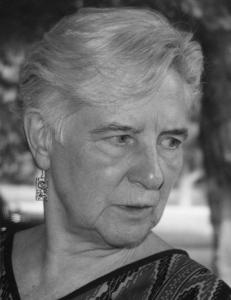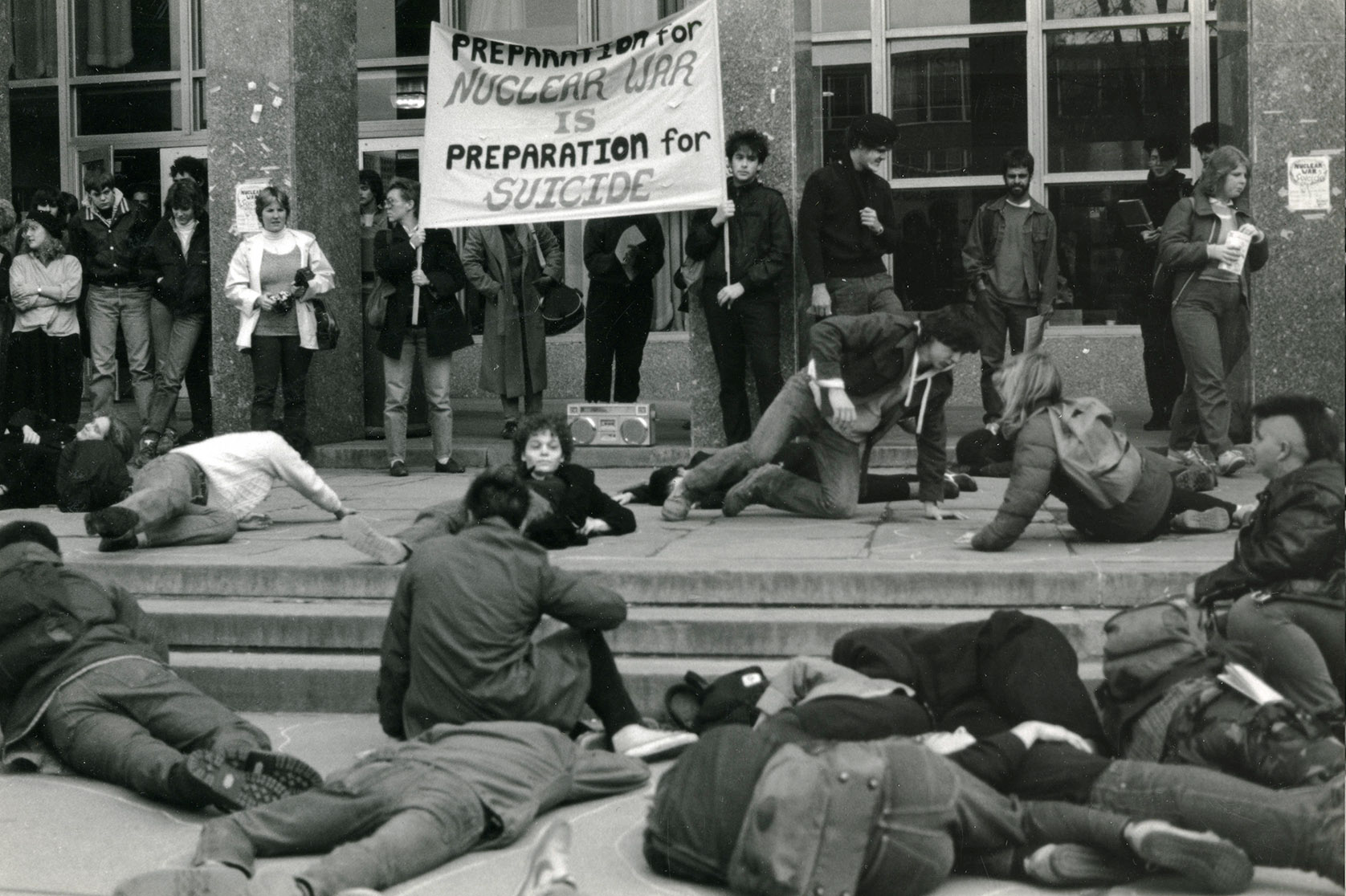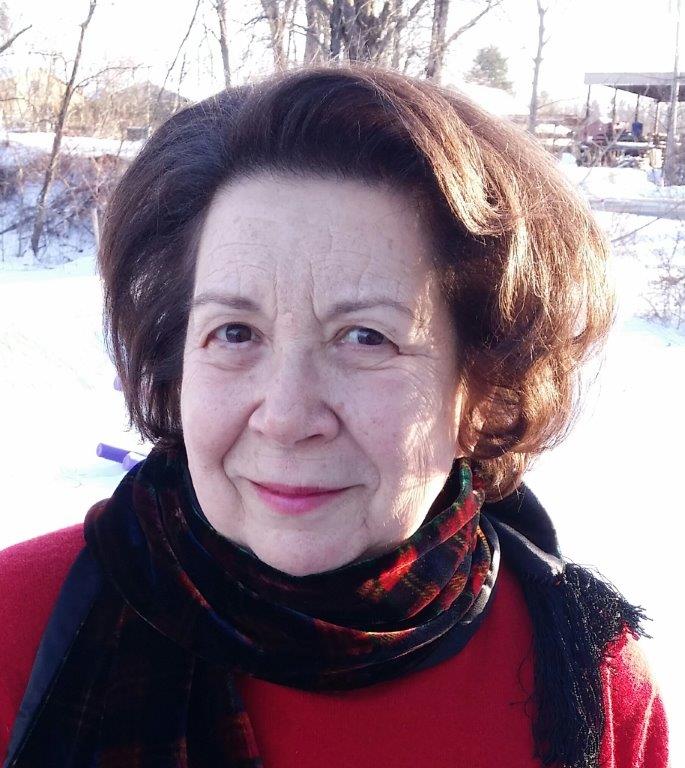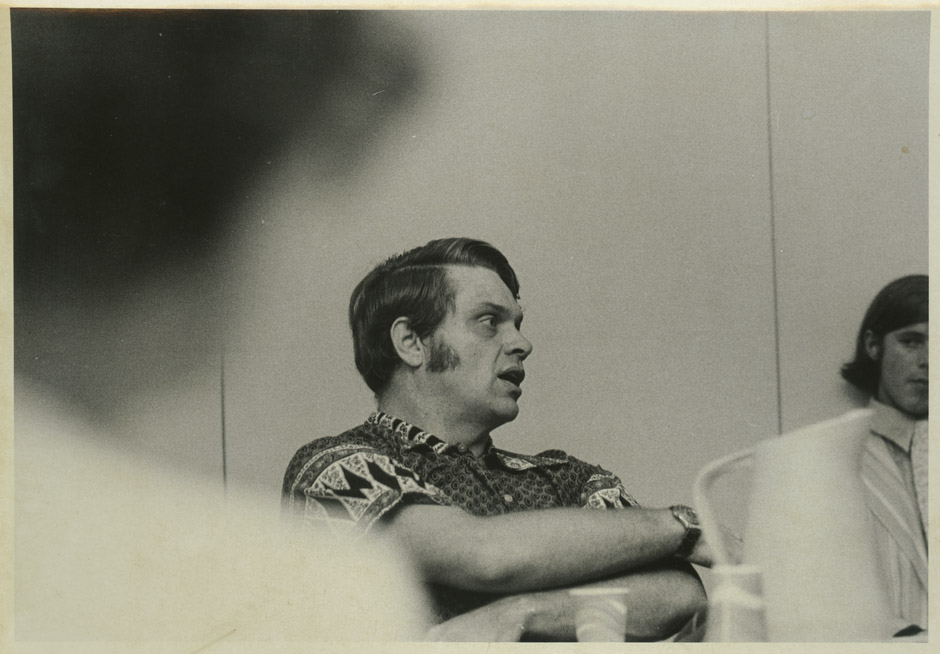Adams-Mills Family Papers
1840-1965 Bulk: 1880-1940
8 boxes 6 linear feet
Call no.: MS 1213
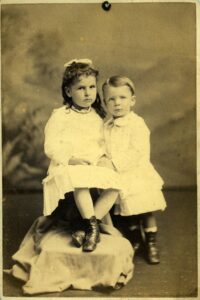 Georgiana and Mason Adams, ca. 1880.
Georgiana and Mason Adams, ca. 1880.
Son of Nathaniel Dickinson Adams and Harriet Hastings, Charles Dickinson Adams (1839-1889) was valedictorian at Amherst College, finished the 2-year law program at Columbia in one year, and practiced law in New York City until his early death. He was active in church and community work, and married Mary Clark Wood. The couple had two children, Georgiana and Mason. In 1905, Georgiana Wood Adams (1874-1957) married Franklin Hubbell Mills, the only son of George Franklin Mills, a classics teacher and later Dean at the Massachusetts Agricultural College. George’s father, Benjamin F. Mills, started the Greylock Institute which was active several decades, and both Franklin and his father George were graduates of Williams College. Franklin and Georgiana Mills lived in New York City, and had one child, Mary Mills (1908-1963). Mason Tyler Adams (1877-1933) married Juliette Emily Hubbell, and the couple had two children. Many in the Adams-Mills-Wood extended family are buried at Wildwood Cemetery in Amherst, MA, as Mary Clark Adams and her mother-in-law Harriet bought two side-by-side lots for the family.
The Adams-Mills Family papers document three core generations of the Adams and Mills families with roots in western Massachusetts. Manuscript material, ephemera and numerous photographs document Charles Dickinson Adams, his wife Mary Clark Wood Adams, and George Franklin Mills; the merging of their families through Georgiana Wood Adams Mills and Franklin Hubbell Mills; and their children, other family, and friends. Highlights include Mary Mills’ baby book, over 20 years of correspondence from Mason to his sister Georgiana, correspondence between other family members reflecting attitudes and events in the late 1800s through mid-1900s, several travel journals and scrapbooks, and records from local schools such as Massachusetts Agricultural College, Amherst College, and Williams College. Over one-third of the collection is photographs, reflecting photographic technology, clothing styles, vacation spots, and home aesthetics from the 19th and 20th centuries.
Gift of Anora Sutherland McGaha, 2024.
Subjects
Amherst (Mass.)--HistoryAmherst (Mass.)--Social life and customsAmherst CollegeMassachusetts Agricultural CollegeNew England--HistoryTypes of material
CorrespondencePhotographs
